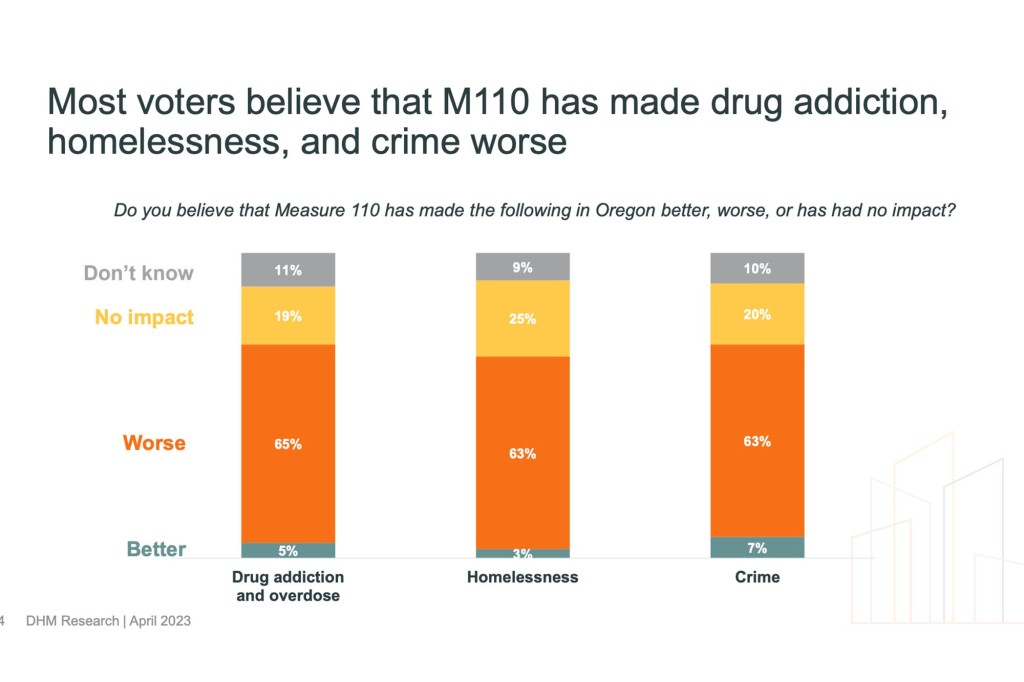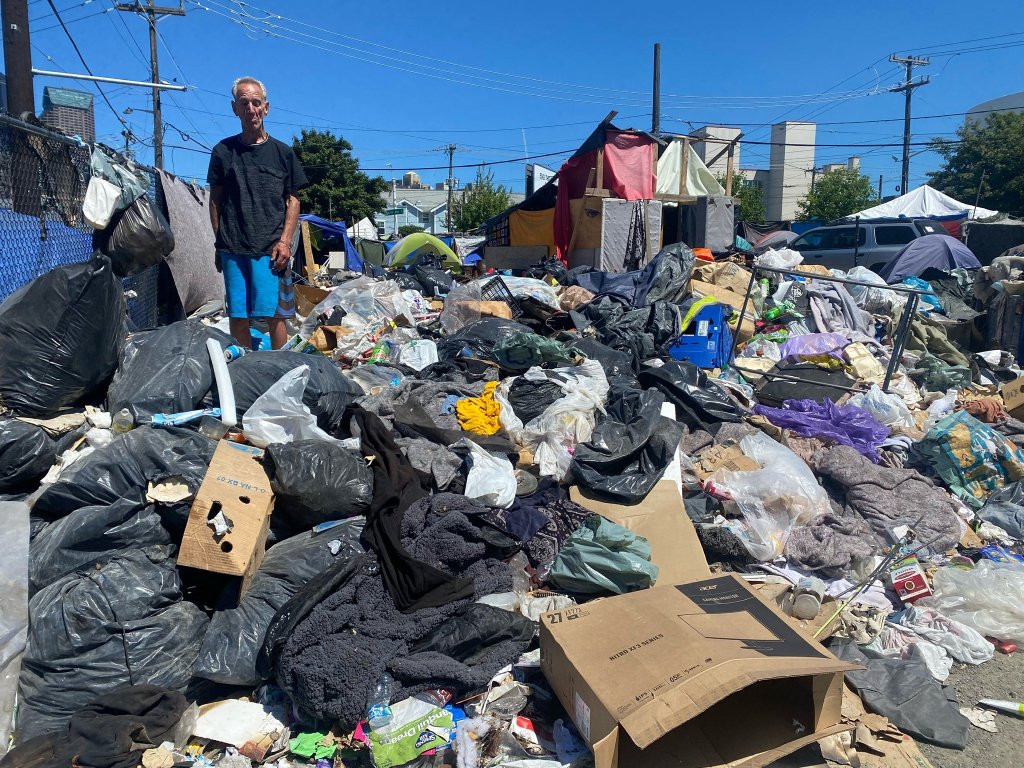Majority of voters in Oregon regret decriminalizing drugs: survey
The majority of voters in progressive Oregon want to overturn the decriminalization of drugs — blaming the lenient approach for rising crime and homelessness.
The survey conducted last month by Portland-based firm DMH Research found that 51% of the 500 respondents felt that Measure 110 — which decriminalized the possession of personal amounts of drugs including heroin, meth and fentanyl — had a negative impact on the state.
More than 6 in 10 voters said they think the legislation has made drug addiction, homelessness and crime in the Beaver State worse.
Measure 110, the Drug Addiction and Recovery Act, also redirected marijuana tax revenue to fund overdose prevention, recovery housing and other harm reduction efforts. It was passed in 2020.
Almost a third of Oregonians (30%) “strongly” supported re-criminalizing drugs in some way and an additional 33% said they were “somewhat” interested, according to the survey.

The criticism was more widespread among Republicans, with 70% believing decriminalization negatively impacts the state, as opposed to just 36% of Democrats.
Measure 110’s detractors also included 60% of residents age 65 and over, while only just over a third (37%) of 18- to 29-year-olds said they felt decriminalizing drugs had damaged the state.
In early April, Oregon Live reported that the number of people experiencing homelessness jumped nearly 23% in two years, well above the national average of under 1% growth.

In the DHM survey, 59% of voters said they believed homelessness was mostly due to drug dependence and mental health struggles as opposed to a lack of affordable housing.
The DHM Research results come a month after Portland’s REI location announced it was closing due, in part, to the “highest number of break-ins and thefts in two decades, despite actions to provide extra security.”
“Oregon has turned into an international spectacle and I think we looked at each other and realize that we made an enormous mistake,” Portland-based trial attorney Kristin Olson told Fox News Digital this week.

She noted that, under Oregon’s current policy, drug possession is a violation that can incur a maximum $100 fine. Users can waive the fine by completing a health assessment, but treatment is optional.
“If we take away all the incentives, [drug users are] not going into treatment,” she claimed.
“I think we didn’t realize that what we were signing up for was the deterioration of civilized norms and the public spaces being ceded to people in late-stage drug addiction and engaged in all sorts of criminal activity to keep that addiction going.”

Despite Measure 110’s promises to prioritize recovery support, a September 2022 study by Oregon Health & Science University identified a lingering 49% gap in substance abuse services due to “statewide gaps in equity and access.”
Olson blamed the gap on Measure 110 “normalizing addiction.”
“Really our focus is on handing out needles and foil. But recovery, I think, has to be the goal,” she posited.

On Wednesday, the Oregon Economic and Revenue Forecast predicted that no longer convicting people with user amounts of substances will save the state more $37 million between 2023 and 2025.
The audit, however, could not track how the money would be spent.
Read the full article Here


